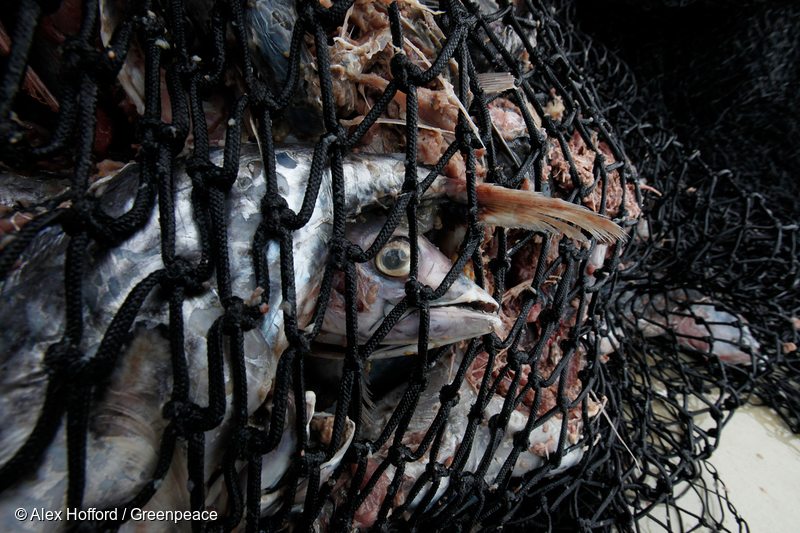Instead of paying big law firms to stifle criticism from independent environmental organizations, we encourage ISSF to invest in measures that hold its member companies accountable for their destructive practices and create real change on the water. The future of our oceans depends on it.

Recently, Greenpeace published an analysis highlighting how the industry-funded International Seafood Sustainability Foundation (ISSF), acts more like an industry trade association than the conservation group it purports to be. The organization’s close ties to the National Fisheries Institute (NFI), the US seafood industry trade association, is an important part of the story. And apparently it’s one that ISSF doesn’t want you to know about.
Shortly after the analysis was published, Greenpeace received a letter from ISSF’s attorneys attempting to muzzle free speech by requesting us to redact facts that are inconvenient for the group’s image. Among its unfounded claims, the letter demands that we redact a statement that ISSF’s current President, Susan Jackson, formerly served as a Director at NFI.
Unfortunately for ISSF, NFI’s tax documents don’t lie. Besides unequivocally stating the trade association’s mission to “Assure a continuous growing consumption of fish and seafood,” the documents also clearly identify Susan Jackson as a Director at NFI. It makes sense that Ms. Jackson would serve in this capacity since she also spent many years in a senior management role at StarKist, the largest canned tuna brand in the United States.
In the end, it’s not just what ISSF does, it’s what it doesn’t do. And it doesn’t do a lot, including requiring its member companies make meaningful commitments to transition their own supply towards more sustainable and equitable sources. Unfortunately, these big companies use ISSF to deflect requests from consumers and major buyers asking for the meaningful, urgent change that is desperately needed. Funding research into how to improve fishing methods or pushing for better fisheries management, doesn’t preclude actually supporting fisheries that employ, or are working to employ, current best practice fishing methods now.
Instead of paying big law firms to stifle criticism from independent environmental organizations, we encourage ISSF to invest in measures that hold its member companies accountable for their destructive practices and create real change on the water. The future of our oceans depends on it.


